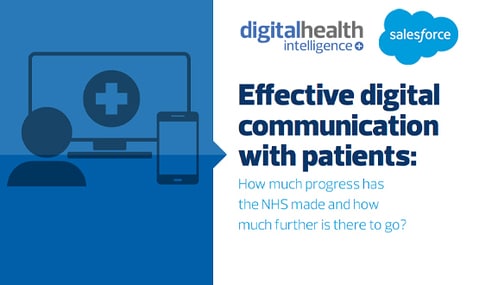Expert view: Robyn Tolley
- 24 August 2010
 Robyn Tolley, managing director of NoemaLife
Robyn Tolley, managing director of NoemaLife
Three months on from the general election, we not only have a new coalition government, but a white paper that promises a radical shake-up of the NHS.
Healthcare IT managers will be hoping that ministers will also free them from the straight-jacket of the National Programme for IT in the NHS.
For the past six years, English trusts have either been grappling with the practicalities of NPfIT or weighing up the options while waiting to see what a change of government might bring.
Meanwhile, their European counterparts have been ploughing ahead, assessing and implementing technologies which are bringing new efficiencies and cost savings to their operations.
The Italian Job
Take Italy. As with the UK, there’s a strong reliance on the public sector, particularly when it comes to the nation’s health, and hospitals are managed at a regional level.
Yet Italian hospitals have had much greater flexibility and freedom when it comes to selecting what technology to invest in and, more importantly, which companies to purchase it from.
Not having a ‘one designated supplier for all’ approach has helped to keep offerings and prices competitive. Hospitals have been able to select the solution which best meets their requirements, however niche they may be.
Suppliers have been selected on their understanding of the specifics of the project and their ability to install with optimum levels of efficiency and accuracy. As a result, the hospitals have seen a much faster return on investment.
Many aspects of the Italian public sector are perceived both in Italy and beyond as being a little chaotic, especially in comparison to what is regarded as the stringent bureaucracy of the UK.
However, the exact opposite is true of Italian hospitals. On the whole, these operate like a well oiled machine. A large part of this can be attributed to the efficiency and streamlined processes that have been introduced by the technology innovations which have been adopted over recent years.
Progress on e-prescribing
Take e-prescribing as a classic example. This is one of the Department of Health’s ‘Clinical 5’ tipping points for strategic IT systems. Yet e-prescribing has been caught up in NPfIT red-tape.
UK hospitals realise this is something that they should be doing and which they are keen to benefit from. But many have been waiting for NPfIT to steer them in the right direction.
In Italy, however, e-prescribing isn’t a ‘nice to have’. It’s already starting to make an impact on how early adopters of the technology are functioning on a daily basis.
These hospitals are realising the benefits of prescribing, ordering and administering medicines to patients with an audit trail automatically attributed to each individual professional and each individual drug.
Problems such as missing drug charts or the illegibility of drugs are being minimised. Prescribing and administration errors are being reduced and patient safety is improving through dosage prompts and patient identification through barcodes.
Having more structured processes in place to manage drug administration is also helping to create more cohesion and organisation between clinical and non-clinical teams. And the integration of e-prescribing is a significant step towards the creation of fully comprehensive and flexible electronic medical records.
As confidence in the technology grows and peer groups report on their experiences, e-prescribing is on target for a wide deployment across Italy over the next 12 months or so.
Loosening the straight-jacket
Likewise, consider order communications and diagnostic reporting is another element of the Clinical 5 that many English trusts are still lacking.
Through specific solutions – which not only deliver orders to labs and radiology but to specialist services and professionals allied to medicine – Italian hospitals have achieved greater efficiencies for clinical practice and improved patient care.
Instead of disjointed paperwork, all orders can be completed in one area of the system, giving greater control to the physician and ensuring that orders aren’t lost or delayed in the process.
Nobody denies that NHS trusts have had a frustrating time of late and that an even more challenging times lie ahead as the Conservative-Liberal Democrat government looks at where fresh cuts can be made.
However, trusts should seize the situation and use it to their advantage. The Italian success story is testament to what can be achieved when control is placed firmly back into the hands of the people who know best what suits each hospital – namely trusts themselves.
NoemaLife is an Italian-German group formed in 1996 that helps healthcare organisations to improve their workflows and processes and so increase their operational efficiency. With more than 400 employed professionals and 1,000 implementations in healthcare facilities, it is a leading vendor of clinical and hospital information technology solutions in Italy and a major player across mainland Europe.




